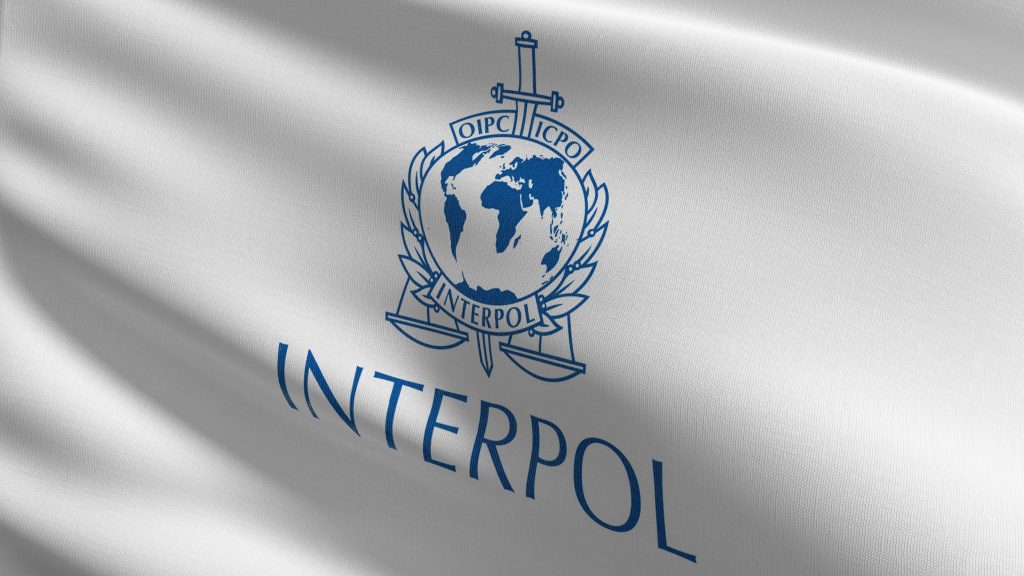The 2025 INTERPOL General Assembly (GA) closed in Marrakech, Morocco today after the election of six new members of INTERPOL’s Executive Committee (EC), the passage by the GA of 14 resolutions, and the release of INTERPOL’s 2024 Annual Report.
The outcome of the EC elections, while not ideal, was better than it could have been. The headline result was the election of Lucas Philippe of France as INTERPOL’s new President. If the leading alternative candidate, Mustafa Sabanca of Turkey, had won, this would – given Turkey’s record as a prolific INTERPOL abuser – have been a disaster for INTERPOL.
Because a European won INTERPOL’s top spot, and because a current EC member – Wang Yong of the PRC – was, as expected elected as Vice President for Asia, four other new EC members were also elected: Issam Fetoui of Tunisia and Mohamed Ibrahim Amin of Kenya for Africa, Kazumi Ogasawara of Japan for Asia, and Stefano Carvelli of Italy for Europe.
This result gives the democracies their strongest position on the EC in years. The only notoriously abusive INTERPOL member nations that now hold seats on the EC are the PRC and Turkey, while France, the U.S., Italy, Germany, Japan, and Canada are all in the EC. This gives the remaining nations on the EC – Morocco, Qatar, Kenya, Tunisia, and Argentina – considerable power. But that’s a far better outcome than a Turkish INTERPOL President.
INTERPOL’s 2024 Annual Report was a disappointment. For many years, INTERPOL’s Annual Reports have provided less and less detail about INTERPOL’s operations, and this year’s report is even lighter than last year’s. Gone are the days when the Annual Report provided the number of Notices published by color, or the distribution by nation of INTERPOL’s seconded staff. But at least INTERPOL cannot be accused of delaying its publication. With luck, the CCF’s Activity Report for 2024 should be available shortly as well.
The GA passed 14 resolutions in Marrakech: the first four are summarized here. GA-2025-93-RES-05 revised the strategy for INTERPOL’s Regional Conference. GA-2025-93-RES-06 is more interesting: though apparently merely a reiteration of the Committee on the Processing of Data’s responsibilities, emphasizes the importance of Article 2 (on the UDHR) of INTERPOL’s Constitution to the Committee’s mandate, which adds significance to the Committee’s power to “make recommendations on the legal framework governing the processing of data through the INTERPOL Information System.”
GA-2025-93-RES-07 is equally interesting. Headed “Balancing the concepts of confidentiality and transparency,” the Resolution makes amendments to various INTERPOL rules with the goal of improving the transparency of “governance-related information” given the “importance of the transparency and accountability of INTERPOL’s Members and the public at large.” We will have to see what “governance-related information” INTERPOL decides to release as a result of this resolution, but any increase in INTERPOL’s transparency is a good thing – as is INTERPOL’s acknowledgement that transparency is a good that confidentiality must be balanced against.
GA-2025-RES-08 makes a single amendment to INTERPOL’s Rules on the Processing of Data, and a number of amendments to the CCF Statute. The RPD amendment – the deletion of Article 94 on “Stolen Work of Art Notices” – is not significant, and it is not yet possible to assess the significance of the CCF Statute amendment, as the amendment does not set them out.
GA-2025-RES-09 is a call for greater collaboration in a “Joint Response to Eradicate Transnational Scam Centres”, and GA-2025-RES-11 is the GA’s formal adoption of the “INTERPOL Strategic Framework 2026-2030 with its Vision, Mission, and Strategic Goals.” INTERPOL has never been short of these sorts of documents. The problem with them is that they tend to contain virtually everything. It’s hard to have a true strategy when your strategic framework (like INTERPOL’s current one) contains 17 strategic priorities. Such are the perils of having to get everyone on board.
The remaining four resolutions all concern INTERPOL’s staff regulations and budget. GA-2025-RES-14 makes revisions to INTERPOL’s staff regulations on dispute resolution and disciplinary procedures. It would be interesting to know if these revisions are a reaction to the expensive staff lawsuit on French sickness insurance contributions that INTERPOL lost in 2024. GA-2025-RES-10 approves both INTERPOL’s “Annual Financial Report and Financial Statements 2024,” which should be publicly available shortly, and an increase in INTERPOL’s General Reserve Fund of 5.176 million Euros.
The final two resolutions are forward-looking. GA-2025-RES-12 adopts a new statutory contributions (i.e. dues) scale for 2026-28. The new scale is not yet available, but – again – it should be published shortly. This revision is unexpected, and its significance cannot be assessed until the scale is available. A revision of the scale means distribution of the dues to be collected across INTERPOL’s membership has been adjusted.
Lastly, GA-2025-RES-13 is a relatively standard resolution on the “Programme of Activities and Draft Budget for 2026, and indications for 2027 and 2028.” Standard though it may be, the resolution is interesting: it sets the INTERPOL budget for operating expenditure for 2026 at EUR 140.9 million (up from 115.7 million Euros for 2025) with – perhaps most importantly – an “increase in statutory contributions of EUR 16.3 million for 2026.” This is a substantial and unexpected expansion in both INTERPOL’s planned expenditure and its dues, and highlights the efforts INTERPOL is making to ensure that both its finances and activities are sustainable.
The Marrakech GA was, at least by the standard of the number of GA resolutions adopted, a relatively less active one. No GA resolutions drew meaningful opposition – all resolutions were adopted with no more than two negative votes. Clearly, the focus of the meeting was the election of six new EC members, including a new INTERPOL President, and from the perspective of those who want INTERPOL to be a body that lives up to its rules, those elections went about as well as they plausibly could have gone.
—
Image: Shutterstock
